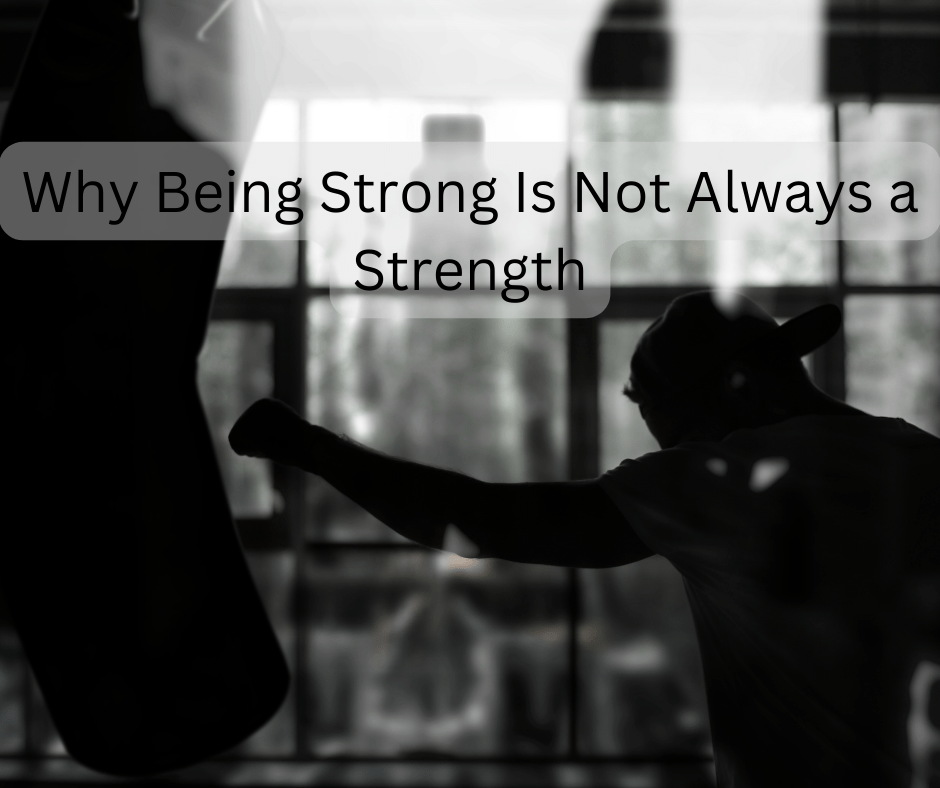Why Being Strong Is Not Always a Strength

Why Being Strong Is Not Always a Strength
Why Being Strong Is Not Always a Strength
Have you ever considered why being called “strong” might not always feel like a compliment? I recently stumbled upon an article titled “Why Being Strong Is Not Always a Strength,” and it stuck with me in a way few things do. I kept returning to it, reflecting on how much of my life—especially now living with cancer—has been shaped by this complex idea of strength.
The Journey of Putting Up Walls
Growing up, I encountered all sorts of difficulties. Some were personal battles, others were rooted in my environment, but they all led to the same result—I started building walls. I learned to suppress my emotions and avoid vulnerability. Whether it was dealing with chaos at home or struggling with identity, I got used to hiding my real self.
It became easier to perform a version of myself than to face the pain of being misunderstood. Over time, that mask hardened into something that others called “being strong.” But it never really felt like strength. It felt like survival. It felt like silence.
The Burden of Appearances
As the years passed, I became an expert at holding it all together. Friends, coworkers, and family would comment on how calm and resilient I seemed. They praised me for how I “handled things.” But what they did not see was the toll it took to keep that mask in place. That performance of strength came at the cost of emotional connection and self-expression.
Being strong became a role I played so well that I forgot how to take it off. And when you wear that armor long enough, people stop checking to see if there is anything cracking underneath. They assume you are fine, and you do not have the energy to correct them.
The Trap of Perpetual Strength
It might sound strange to say, but there is a trap in being labeled as strong. Once people see you that way, it becomes harder to let your guard down. You get stuck in a cycle where you feel like you must live up to the expectation—always composed, always capable, never shaken.
But the truth is, I was shaken. Often. And the more I felt I had to hide it, the more isolated I became. This image of being strong became a barrier between me and the people I loved. I did not know how to say, “I’m struggling,” or “I’m scared,” because I was afraid it would disappoint them—or worse, make them worry even more.
Embracing the Power of Vulnerability
Everything changed when I was diagnosed with Glioblastoma. Suddenly, my entire world shifted, and I had to reevaluate what strength really meant. Was it pushing through silently, or was it finally letting people in? I chose the latter. Because I realized that true strength is not about looking unshakable—it is about being real.
There is power in saying, “I’m hurting.” There is courage in crying in front of someone you trust. There is authenticity in not having it all together. And there is immense healing in opening up, even when it feels scary.
When Strength Becomes a Silent Struggle
One aspect that often goes unspoken, especially for those with chronic or terminal illnesses, is how being strong becomes a silent expectation. It is like once you are sick, everyone looks to you for inspiration. You become the brave one, the warrior, the one who never complains. And on the outside, you play the role because you do not want to worry people or make them uncomfortable.
But inside, you might be unraveling. You might be scared, unsure, angry, or tired of always being the one who “handles it well.” That role, while meant to uplift, can feel like a weight you carry alone. And the truth is, no one should have to carry that alone. Not all the time.
The Pressure to Pretend
After being called strong for so long, you start to believe that showing any weakness is a failure. That letting your guard down will change how others see you. That crying, asking for help, or admitting fear makes you less than you were.
But that is the lie that strength culture tells us. That vulnerability is weakness. That softness is surrender. That pain must be hidden. In reality, being strong is not about bottling things up—it is about allowing yourself to feel and heal, even when it is messy and uncomfortable.
The Courage to Lean In
Real strength is connection. Real strength is leaning on someone else. Real strength is saying, “I cannot do this alone.” And if you are in that place—whether you are battling illness, grief, identity, or just the stress of holding everything together—I want you to hear this:
You are allowed to let go. You are allowed to be held. You are allowed to fall apart and come back together—again and again.
Because there is a different kind of strength in vulnerability. A strength that does not seek applause but seeks truth. And when you lead with truth, you make space for others to do the same. You break cycles. You build bridges. You become a light for someone else who is tired of being strong too.
Final Reflections
I am still learning how to drop the armor. Still learning how to be soft in a world that often expects steel. But I am getting there. And writing about it helps. Maybe reading about it does too. If this resonates with you, know that you are not alone.
Being strong has its place—but so does being human. And I am choosing both.
Helpful Resources
Tags: Being Strong, Vulnerability, Mental Health, Resilience, Cancer and Identity, Emotional Strength, Glioblastoma Journey, JohnVsGBM, Breaking the Mask, Strength Culture


 NEW ARRIVALS
NEW ARRIVALS APPAREL
APPAREL GIFT AND HOME
GIFT AND HOME COLLECTION'S
COLLECTION'S HOPE HUB
HOPE HUB BLOG
BLOG



